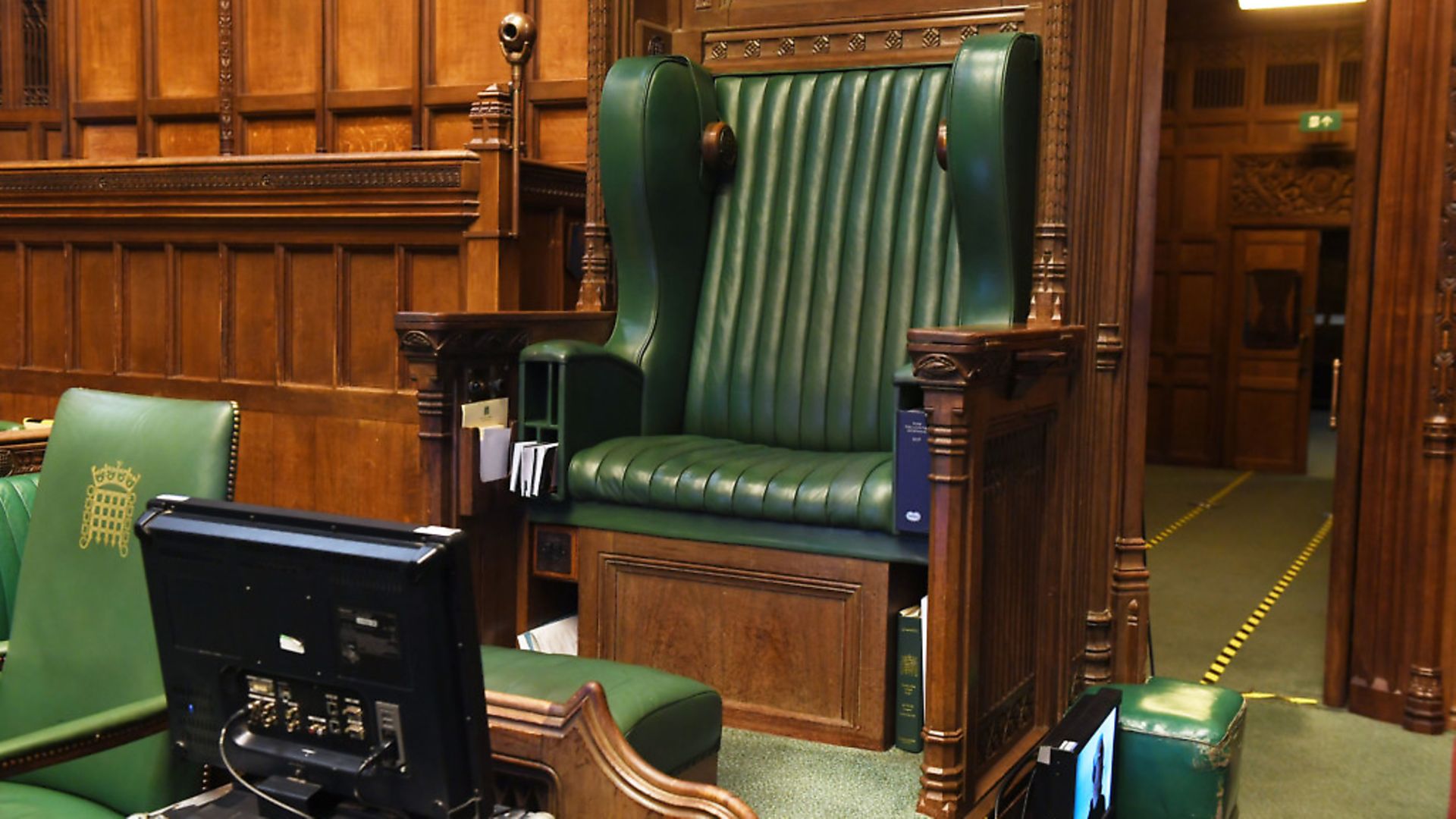
Up to fifty MPs will be allowed in to the House of Commons when it resumes after Easter recess, but the rest will log in using video links.
To approve the new ‘hybrid’ arrangement, the House will need to sit physically on Tuesday to vote the plans through.
Strict social distancing arrangements will be in force with MPs required to sit two metres apart.
It is unclear how many will attend, with views divided among those who believe they have a duty to be present and others committed to staying away.
If it does go through, it will mean the new arrangements will in place for Prime Minister’s Questions on Wednesday, with foreign secretary Dominic Raab standing in for Boris Johnson.
Have your say
Send your letters for publication to The New European by emailing letters@theneweuropean.co.uk and pick up an edition each Thursday for more comment and analysis. Find your nearest stockist here or subscribe to a print or digital edition for just £13. You can also join our readers' Facebook group to keep the discussion and debate going with thousands of fellow pro-Europeans.
The motion states the orders relating to the ‘hybrid’ arrangement will have effect until May 12, although they could be extended by a further motion.
Speaker Sir Lindsay Hoyle said it would be a ‘historic’ moment for the Commons, and that if it went well MPs could move to a fully ‘virtual’ House.
‘It will be a historic moment in our 700-year history to have MPs contributing to Prime Minister’s Questions, urgent questions and statements via video link from the safety of their own homes and offices,’ he said.
‘If it works, the House will consider extending the measures to a fully virtual Parliament as quickly as possible to include debates on motions and legislation and even a system of remote voting,’ he said.
The House of Lords, which also returns on Tuesday, will have a mix of online and in-person proceedings, again with peers encouraged to stay away.
In the Commons, up to 120 MPs will be able to take part remotely through video-conferencing.
Experts from the National Cyber Security Centre have advised that the use of Zoom will be appropriate as long as the application’s use is carefully managed.
A number of screens will be placed around the Commons chamber to allow the Speaker and MPs in Westminster to be able to see their homeworking colleagues.
MPs who wish to participate in proceedings will need to notify the House Service in advance and there will be a list of those chosen and the planned order in which they will be called.
Backbenchers will, as usual, be drawn at random although the speaker will ensure opposition spokesmen and women and the relevant select committee heads are able to take part.
The initial system does not cover remote voting, although officials are working on developing a secure system which would also have to be approved by the House before it could be adopted.
The initial cost of development amounts to £148,793 and the running costs for maintaining the system are estimated at £369,267 per month, according to a memorandum published by House of Commons Clerk John Benger as part of his role as accounting officer.









